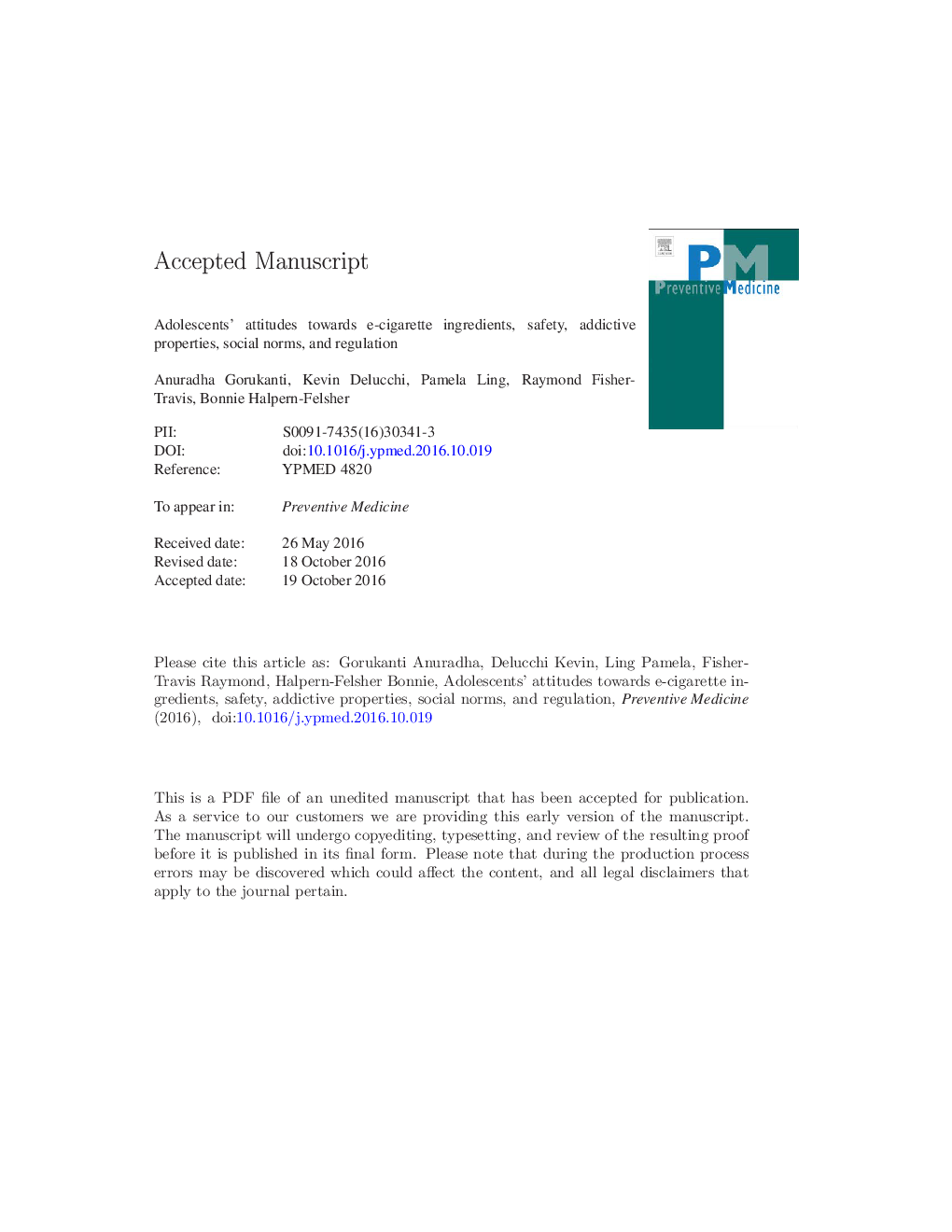ترجمه فارسی عنوان مقاله
نگرش نوجوانان نسبت به مواد الکترونیکی سیگار، ایمنی، خواص اعتیاد آور، هنجارهای اجتماعی و مقررات
عنوان انگلیسی
Adolescents' attitudes towards e-cigarette ingredients, safety, addictive properties, social norms, and regulation
| کد مقاله | سال انتشار | تعداد صفحات مقاله انگلیسی |
|---|---|---|
| 135735 | 2017 | 25 صفحه PDF |
منبع

Publisher : Elsevier - Science Direct (الزویر - ساینس دایرکت)
Journal : Preventive Medicine, Volume 94, January 2017, Pages 65-71

